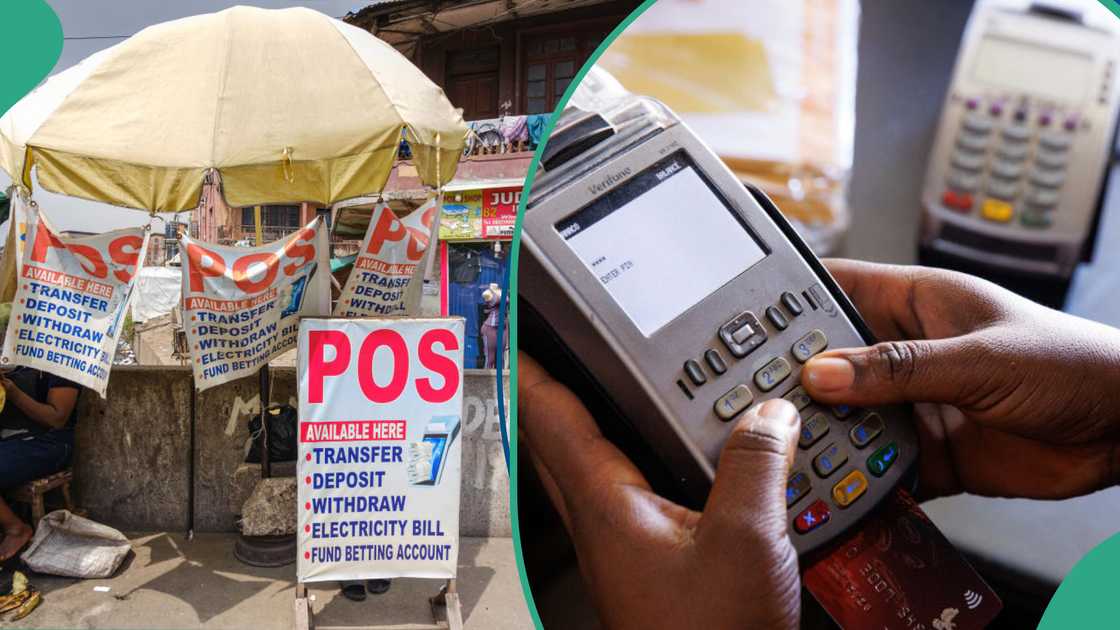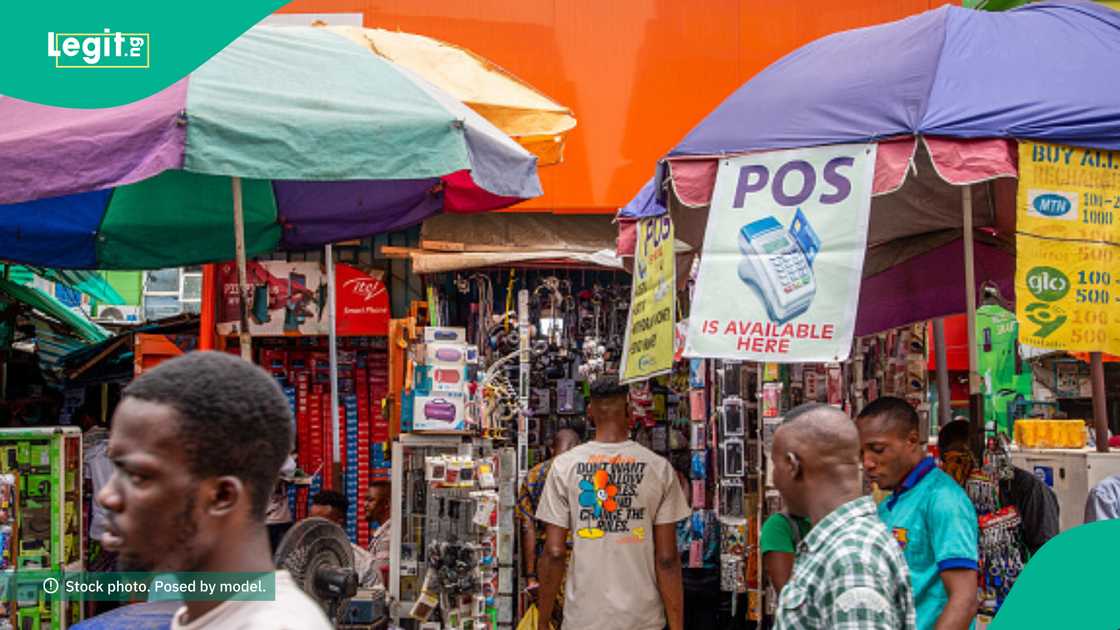PoS Prices Double: Moniepoint, OPay, PalmPay, Banks Raise Cost of Terminals amid FX Crunch
- The prices of PoS terminals have seen a 100% increase for advanced devices and 30% for entry-level models
- Banks and fintechs blame the rising cost of those devices on foreign exchange fluctuations in the past 12 months
- However, experts believe that demand is at the heart of the surging prices, as more Nigerians turn to PoS business
Pascal Oparada, a reporter for Legit.ng, has over ten years of experience covering technology, energy, stocks, investment, and the economy.
The cost of Point-of-Sale (PoS) terminals in Nigeria has skyrocketed between 2023 and 2025, climbing by up to 100% for advanced devices and at least 30% for entry-level models.
The surge is driven by rising inflation, foreign exchange volatility, and higher logistics costs, reshaping the dynamics of Nigeria’s fast-growing agency banking sector.

Source: Getty Images
Fintechs drive growth but feel the pressure
Entry-level PoS machines that once cost between ₦15,000 and ₦20,000 now sell for about ₦21,500. More sophisticated Android and smart terminals, previously priced between ₦30,000 and ₦40,000, now go for between ₦62,000 and ₦85,000.
Despite these hikes, demand for PoS services continues to expand, particularly in underserved and rural areas where these devices remain the primary access point to financial services.
According to Nigeria Inter-Bank Settlement Systems (NIBSS), the country had 8.3 million registered PoS terminals as of March 2025.
Fintech companies, including Moniepoint, OPay, PalmPay, and Nomba, dominate Nigeria’s PoS market, aggressively onboarding agents. But rising costs are forcing them to rethink their pricing and acquisition models.
A senior fintech official attributed the sharp increase to naira depreciation and higher import costs, noting that all PoS devices are imported.
“Currently, there is no locally produced PoS; all are imported, and the price has to reflect the exchange rates,” the official said.
Some fintechs have shifted to leasing models, retaining ownership of devices while requiring agents to meet higher transaction volumes. Dealers also now demand higher caution fees or outright payments, unlike in the past when devices could be obtained with deposits as low as ₦20,000.
Barriers rise for small entrepreneurs
For many young Nigerians and small business owners, higher device costs are making it difficult to enter the agency banking business—one of the country’s most lucrative small-scale ventures. Existing operators with multiple outlets are also under strain, as expansion plans become less viable due to rising costs.
Although fintechs still provide flexible acquisition models—ranging from refundable deposits to outright purchases—the business is no longer as affordable as it was just two years ago.
Inflation and FX take the blame
According to a report by MSME Africa, Nigeria’s inflation jumped from 21.34% in December 2022 to a record 34.60% in November 2024, before easing slightly to 20.12% by August 2025. Meanwhile, the naira plunged from around ₦500 per dollar in early 2023 to about ₦1,500 per dollar in 2025.
With all PoS terminals imported, fintech firms have little control over pricing. The absence of local manufacturing keeps the industry vulnerable to foreign exchange swings and global supply chain disruptions.
Outlook: Still critical for financial inclusion
Despite higher costs, analysts say demand for PoS services will remain strong, fueled by Nigeria’s cashless policy and financial inclusion drive.
For millions in rural and underserved communities, PoS terminals remain the closest link to formal banking services—ensuring that the devices will continue to play a vital role, even at higher prices.
Experts have also said that the development may be the reason the operators hiked their service charges to remain competitive and break even.

Source: Getty Images
A prior report by Legit.ng disclosed that the operators reviewed their prices as the fintechs began charging Electronic Money Transfer Levy (EMTL) on receipts from N10,000 and above.
GTBank removes PoS processing fees
Legit.ng earlier reported that Guarantee Trust Bank has ended processing fees on all its Point-of-Sale (PoS) terminals, boosting its commitment to supporting businesses with low operating costs.
The initiative became effective on Tuesday, February 11, 2025, with the bank disclosing that merchants using GTBank PoS terminals will no longer be charged for Merchant Service Charges (MSC) when getting customer payments.
The zero processing charge initiative aligns with the bank’s efforts to empower businesses with creative and financial solutions that drive growth and efficiency.
Source: Legit.ng





